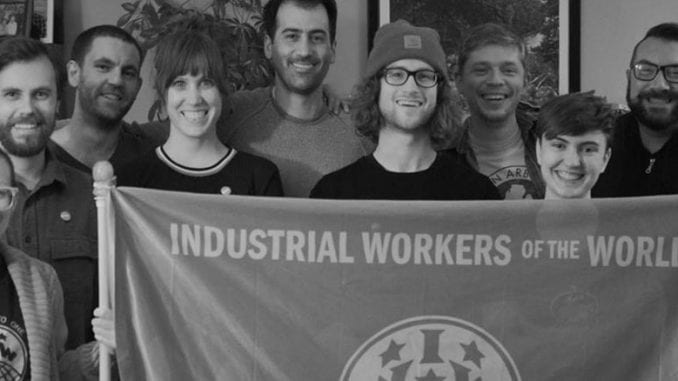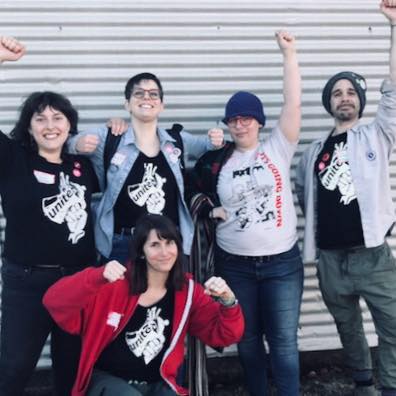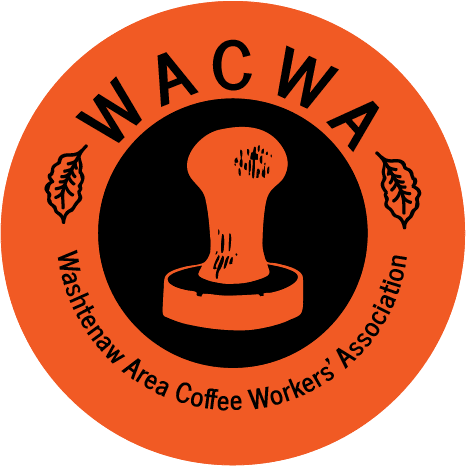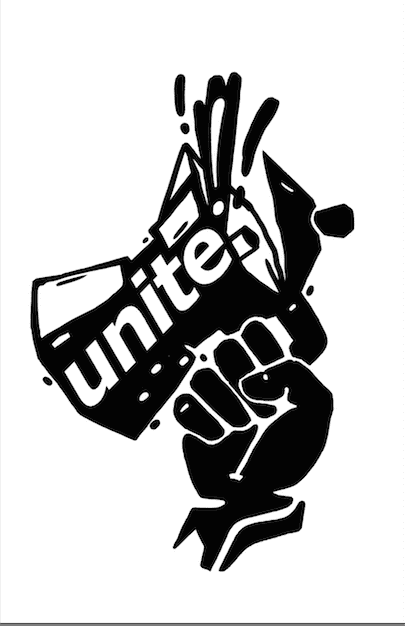
Members of the Gimme Baristas’ Union and Washtenaw Area Coffee Workers’ Association give their advice on what to consider if you’re thinking about unionizing at your café.
BY MARK VAN STREEFKERK
BARISTA MAGAZINE ONLINE
Cover photo courtesy of Alec Hershman
From the editor: The topic of labor has been at the forefront of many recent conversations in specialty coffee, and we recently explored it with a three-part series. Read the first installment here, the second one here, and the final one here. Today, we present a bonus and final addition to the series with a piece on unionizing.
Eight-hour workdays, breaks, and minimum wage are all directly attributed to the efforts of labor organizing and unions. With groups like Coffee at Large and #CoffeeToo calling attention to working conditions in the specialty-coffee industry, some workers have begun to talk about unionizing. At the time of this article, there are at least two known functioning barista unions in North America, and we had the chance to get some advice from them for Barista Magazine Online. Based on interviews with Alec Hershman of the Washtenaw Area Coffee Workers’ Association (WACWA), along with collective statements from Samantha Mason, Sophie Tantillo, and Ava Mailloux of the Gimme Baristas’ Union in Upstate New York, here are five things to consider if you’re thinking of starting a union at your café.

1. Worker solidarity always wins. Regardless of whether or not your workplace decides to officially unionize, communicating with coworkers is always a positive thing. Get to know the people you work with, hang out after work, or organize a group event. In building camaraderie with your coworkers, find out if you can address some workplace concerns together without becoming a union.
“If all the baristas in a café are concerned about an issue and they talk about it with themselves first and they bring that issue to their boss, it’s very likely to be resolved in their favor,” Alec says.

2. There are all kinds of reasons why baristas would want to unionize. They don’t have to necessarily be the “extreme” examples of workplace injustice like wage theft, harassment, or racist behaviors, either. A common reason for organizing most unions is for better wages. Most cafés are based on a fast-food restaurant model, which brings with it recurring fast-food employee grievances: chronic understaffing, insufficient training, scheduling issues, low wages, and favoritism, to name a few. In third-wave coffee, baristas are encouraged to cultivate a professional identity, and oftentimes within a model that doesn’t support that. For members of the Gimme Baristas’ Union, it was worth it to dig in and unionize “instead of quitting and moving on to another service industry job where these same issues would follow us.”
3. For help with unionizing, link up with an existing labor union in your area. For example, WACWA organized with the Industrial Workers of the World and Gimme is affiliated with the Workers United Rochester Regional Joint Board. After you’ve talked with your coworkers, feel confident in the objectives and mission of your union, and think you can get a majority of your workplace to vote “yes” for it, then announce it to your employer. If they voluntarily recognize your union, great! If they don’t, and most likely they won’t, you’ll have to file with the federal government to request a union. They’ll send someone to have a formal election in your workplace, which could take upwards of a month. After the election, if 51% of your company votes “yes” to a union, then you’ll be federally recognized, and your employer will have to negotiate with you, which they usually do through a lawyer.

4. It’s probably going to be tense. Prepare for some backlash from your employer, even if they have been supportive of the idea in the past. After baristas at Gimme told employers they were organizing, “Management responded by holding captive audience meetings telling workers why we don’t need or want a union,” Gimme Baristas’ Union says.
5. Be in it for the long haul. Creating rapport and solidarity between your coworkers, organizing, reaching out for help, and the process of becoming federally recognized can take up to a year. Once you have union status, the negotiation process can drag on, but it’s a real way of taking power back into the hands of laborers, and puts them on equal footing with employers.
“I think that there’s a groundswell for this kind of movement,” Alec says. “I think what’s happened over the last decade is a lot of talented, educated workers have invested energy into professionalization in the coffee industry, but basically, job security and compensation haven’t kept up with that level of investment. And now we have a lot of people who love that kind of work, and care about what they do, and are putting their skills to good use. I think the day is coming where a living wage is gonna be a requirement for baristas everywhere eventually, but I think it’s kind of starting with the third-wave shops.”

ABOUT THE AUTHOR
Mark Van Streefkerk is Barista Magazine’s social media content developer and a frequent contributor. He is also a freelance writer, social media manager, and novelist based out of Seattle. If Mark isn’t writing, he’s probably biking to his favorite vegan restaurant. Find out more on his website.
